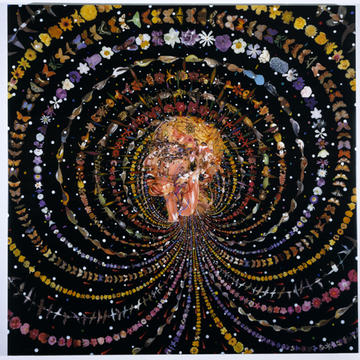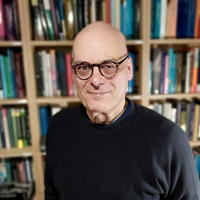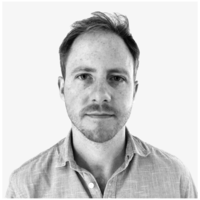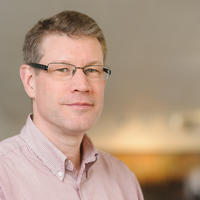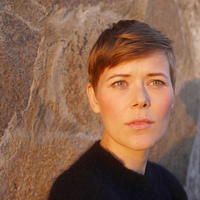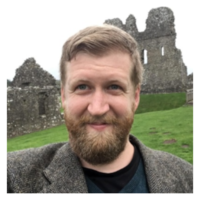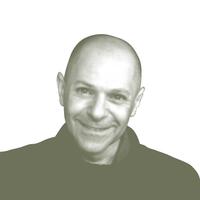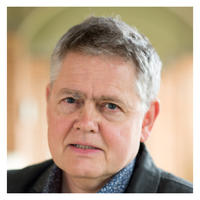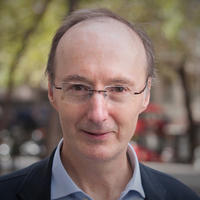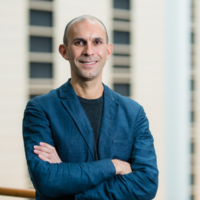Consciousness: An Interdisciplinary Perspective
A two-day event that examines the ethical, moral and existential problems of modern neuroscience and neurotechnology
Consciousness: An Interdisciplinary Perspective
Organised by Mette Leonard Høeg.
Subjective experience and the state of being aware were until a few decades ago considered solely philosophical problems.
Today the human mind and its content are becoming increasingly technologically accessible. At the same time, new data and theories on the sources of consciousness are spilling from neuroscience and related disciplines into other research fields. Neurotechnology is advancing rapidly and new theories of consciousness are appearing: deep brain stimulation; collective minds-technologies; new possibilities of bio- and psychedelic enhancement; the mapping of the neural correlates of consciousness; the predictive processing theory of brain function; new notions of trans- and posthumanism etc.
Many of these entail a radical challenge to some of the most common intuitions and conventional conceptions people hold about themselves, human nature and existence, open up dizzying possibilities of change and lead to novel definitions of what it means to be human.
A new 'neuroanthropology' is emerging which leads to new moral questions and uncertainties and at the same time confronts us with some of the most fundamental existential questions with a new urgency and clarity.
An adequate respond to these new neurotechnological possibilities, the rise of neurocentrism and the emerging neuroanthropology requires that the natural sciences and humanities collaboratively and proactively engage in the handling of the ethical implications and resulting existential uncertainties.
Information about the talks, speakers and how to register can be found below.
Information about the Conference
Consciousness: An Interdisciplinary Perspective is a two-day, international conference and workshop that explores the pressing ethical, moral and existential problems of modern neuroscience and neurotechnology from an interdisciplinary perspective.
The event is an initiative to develop consciousness research as a broad field the purpose of which is not only to gain further empirical access to and insight into the human mind, but also to foster a strong neuroethical and -existential dimension.
Consciousness: An Interdisciplinary Perspective brings together scholars from Oxford and beyond to share and discuss the latest work in consciousness research and engage with foundational theorising about the nature of an emerging field.
The event is in-person and held in Oxford. It uses a specific clinical research project as a case-study, namely the Wellcome Innovator project on deep brain stimulation (DBS) on minimally conscious states and the role of brainstem nucleus in human consciousness led by Prof Alex Green and invites for wide interdisciplinary commentary, reflection and debate from researchers in other disciplines.
In the initial session, Alex Green will describe the research and clinical conundrum in relation to DBS and bring insights from the decisions he and his team make on a daily basis in relation to treatment.
In the following sessions, speakers from the fields of neuroscience, ethics, literature, anthropology, psychology and cultural studies will engage with the case-study and related research by considering the ethical, existential, psychological and socio-cultural implications and reflecting on questions such as: What constitutes meaningful or desirable states of consciousness? What is a good life? How do new neurotechnologies impact our view of human nature and mind/consciousness? What are the individual psychological and existential implications? What are the socio-cultural implications?
The Speakers
Professor Olivia Carter
|
Olivia is a Professor at the University of Melbourne School of Psychological Sciences. She completed a PhD in Neuroscience at the University of Queensland, followed by a post-doctoral research fellowship in the Vision Science Lab at Harvard University. She currently heads the Human Experience lab where her research interests focus on understanding the factors determine the contents of an individual’s conscious experience. Olivia is also interested in the impact of neuroscientific advances within industry and society with a particular focus on understanding the extent to which individual’s experience can be augmented or altered through pharmacological, behavioural or electronic stimulation. She has previously served as the Executive Director of the International Association for the Scientific Study of Consciousness and the president to the Australasian Cognitive Neuroscience Society. |
Professor Roger Crisp
|
Roger Crisp is Director of the Oxford Uehiro Centre for Practical Ethics, Professor of Moral Philosophy at the University of Oxford, and Uehiro Fellow and Tutor in Philosophy, St Anne’s College, Oxford. He has published monographs on J.S. Mill (1997), Henry Sidgwick (2015), and the British moralists (2019), as well as Reasons and the Good (2006), a Sidgwickian defence of various positions in normative ethics. He has edited various collections, including the Oxford Handbook of the History of Ethics, and has translated Aristotle’s Nicomachean Ethics for Cambridge University Press. His most recent book is Sacrifice Regained. |
Professor Keith Frankish
|
Keith Frankish is a philosopher and writer. He is an Honorary Professor in the Department of Philosophy at the University of Sheffield, UK, a Visiting Research Fellow at The Open University, UK, and an Adjunct Professor with the Brain and Mind Programme in Neurosciences at the University of Crete, Greece. |
Associate Professor Philip Goff
|
Philip Goff is an Associate Professor of Philosophy at Durham University. Goff’s main research focus is consciousness, but he is interested in many questions about the nature of reality. Goff is most known for defending panpsychism, the view that consciousness is a fundamental and ubiquitous feature of the physical world. Goff has authored an academic book with Oxford University Press – Consciousness and Fundamental Reality – and a book aimed at a general audience – Galileo's Error: Foundations for a New Science of Consciousness. His new book Why? The Purpose of the Universe, argues that the universe has a purpose, and will be published by Oxford University Press in November 2023. Goff has published 48 academic articles as well as writing extensively for newspapers and magazines, including Scientific American, The Guardian, Aeon and the Times Literary Supplement. https://twitter.com/Philip_Goff | https://www.philipgoffphilosophy.com/ |
Professor Alex Green
|
Alex Green is a Professor of Neurosurgery in the Nuffield Department of Surgical Sciences at the University of Oxford. He specialises in Functional Neurosurgery including Neuromodulation using Deep Brain Stimulation and Spinal Cord Stimulation. His main research areas are autonomic control, pain and consciousness. He is Chief Investigator on a number of trials including MINDS (DBS in Multiple System Atrophy), EPIONE (DBS for chronic post-stroke pain) and BRAINSTATE (DBS for Minimally Conscious State). |
Dr Mette Leonard Høeg
|
Mette Leonard Høeg is a Carlsberg Foundation Junior Research Fellow at Linacre College and Hosted Research Fellow at the Uehiro Centre for Practical Ethics, University of Oxford, conducting research at the intersection of literary studies, ethics and neuroscience. She holds a PhD in English from King's College London. Her recent publications include “The value of literature for consciousness research and ethics” (forthcoming in Journal of Consciousness Studies); Uncertainty and Undecidability in Twentieth-Century Literature and Literary Theory (Routledge 2022); and Literary Theories of Uncertainty (Bloomsbury 2021). Mette also works as a literary and cultural critic and has published extensively on contemporary culture, literature and philosophy in Danish and UK media. |
Professor Mette Terp Høybye
|
Mette Terp Høybye is a Professor at the Interacting Minds Centre, Department of Clinical Medicine, Aarhus University, and at Silkeborg Regional Hospital, Denmark. She works at the intersection of anthropology and clinical medicine, leading interdisciplinary research that explores uncertainties in the becoming of knowledge in clinical settings and how it relates to high stake decisions in marginal life situations, from perspectives of anthropology, philosophy, and medical humanities disciplines. She has conducted extensive anthropological fieldwork in hospital settings and is leading ethnographic research tracing uncertainties of prognostics of consciousness in unresponsive patients with serious brain injury. She has a keen interest in developing methodologies of medical anthropology, currently exploring the body as a key source of knowledge in ethnographic practice and developing ways to work with this knowledge through creative movement practices. University website | LinkedIn | Mette Terp Høybye @mettehoybye | Borderlands of Living Lab @borderlands_liv |
Professor Morten Kringelbach Photo credit: Department of Psychiatry, University of Oxford |
Professor of Neuroscience, Oxford & Aarhus Universities; Director, Centre for Eudaimonia and Human Flourishing; Senior Research Fellow, Linacre College Professor Morten L Kringelbach is the founding director of the interdisciplinary Centre for Eudaimonia and Human Flourishing at Linacre College, University of Oxford, UK. He is also a Principal Investigator at Center for Music in the Brain, University of Aarhus, Denmark. His prizewinning research has helped elucidate the brain systems driven by hedonic and eudaimonic stimuli such as, for example, infants, food, psychedelics and music. He has published fourteen books, and over 350 scientific papers, chapters and other articles and his research features regularly in newspapers, magazines, radio and television. Department of Psychiatry webpage | Centre for Eudaimonia and Human Flourishing |
Dr Chris Letheby
|
Dr Chris Letheby is a Lecturer in Philosophy at The University of Western Australia (UWA). His areas of specialization are philosophy of mind, philosophy of cognitive science, and philosophy of neuroscience. His research interests include the causal mechanisms and epistemic status of transformative spiritual practices, the possibility of a "naturalistic spirituality", and the nature of the self and self-awareness. Letheby’s research to date has focused mainly on the use of classic psychedelic drugs in neuroscience and psychiatry. In several articles and a book, he has argued that a traditional conception of psychedelics as agents of insight and spirituality can be reconciled with naturalism, the philosophical position that the natural world is all there is. His monograph Philosophy of Psychedelics was published in 2021 by Oxford University Press. The book has received two awards to date, both from The University of Adelaide, where Letheby worked as a postdoc while writing it: the Faculty of Arts Prize for Outstanding Research by an Early Career Researcher and the School of Humanities Early Career Prize for best publication in 2021. A Spanish translation was published in 2022 by Editorial Bauplan. |
Professor Neil Levy
|
Neil Levy is a Senior Research Fellow at the Uehiro Centre for Practical Ethics, Oxford, and a professor of Philosophy at Macquarie University in Sydney. He’s published extensively on topics in philosophy of action, philosophical psychology and social epistemology, among other topics. Most relevantly, he’s the author of Consciousness and Moral Responsibility (Oxford University Press, 2014). |
Professor Ankhi Mukherjee Photo by John Cairns |
Ankhi Mukherjee is Professor of English and World Literatures at the University of Oxford and a Fellow of Wadham College. Her most recent book, Unseen City: The Psychic Lives of the Urban Poor (Cambridge University Press, 2021), has won Columbia University's Robert S. Liebert Award for "outstanding scholarship in the field of applied psychoanalysis." Mukherjee's second monograph, What Is a Classic? Postcolonial Rewriting and Invention of the Canon (Stanford UP, 2014), was awarded the British Academy Prize in English Literature. Her other publications include Aesthetic Hysteria: The Great Neurosis in Victorian Melodrama and Contemporary Fiction (Routledge, 2007), and the collections of essays she has edited, namely A Concise Companion to Psychoanalysis, Literature, and Culture (with Laura Marcus, Wiley-Blackwell, 2015) and After Lacan (Cambridge University Press, 2018). Mukherjee has published in competitive peer-reviewed journals, including PMLA, MLQ, Contemporary Literature, Parallax, and the Cambridge Journal of Postcolonial Literary Inquiry, and sits on the editorial boards of several international journals. She has been a postdoctoral research fellow of the British Academy (2003-2006), a visiting fellow at the Humanities Research Centre at the Australian National University (2015), and the John Hinkley (Visiting) Professor at Johns Hopkins University (2019). She will be faculty at Harvard University's Institute of World Literature (IWL) in summer 2023. At present, Mukherjee has two books under contract. She is writing A Very Short Introduction to Postcolonial Literature in the widely circulated VSI series (Oxford UP, 2023) and co-editing (with Ato Quayson) a collaborative volume titled Decolonizing the English Literary Curriculum (Cambridge UP, 2023). |
Professor Nicholas Royle
|
Nicholas Royle is Professor Emeritus of English at the University of Sussex. He has previously taught at the universities of Stirling (Scotland), Tampere (Finland) and Oxford; and has been visiting professor at the universities of Århus (Denmark), Santiago del Compostela (Spain), Turku (Finland), Manitoba (Canada), and Lille (France). He has published many books, including Telepathy and Literature (1991), E.M. Forster (1999), Jacques Derrida (2003), The Uncanny (2003), Veering (2011), How to Read Shakespeare (2014) and Hélène Cixous: Dreamer, Realist, Analyst, Writing (2020), as well as the novels Quilt (2010) and An English Guide to Birdwatching (2017), and Mother: A Memoir (2020). In addition, he is co-author with Andrew Bennett of three books: Elizabeth Bowen and the Dissolution of the Novel (1994), This Thing Called Literature (2015) and An Introduction to Literature, Criticism and Theory (Sixth edition, 2023). His most recent book, David Bowie, Enid Blyton and the Sun Machine, is due to be published in November 2023. Royle is also a managing editor of the Oxford Literary Review and director of Quick Fictions. Webpages: https://myriadeditions.com/creator/nicholas-royle/ | https://quickfiction.co.uk/ |
Professor Max Saunders
|
Max Saunders is Interdisciplinary Professor of Modern Literature and Culture at the University of Birmingham. From 2012-18 he was Director of the Arts and Humanities Research Institute at King’s College London, where he co-directs the Network for Life-Writing Research. He studied at the universities of Cambridge and Harvard, and was a Fellow of Selwyn College, Cambridge. He is the author of Ford Madox Ford: A Dual Life, 2 vols. (Oxford University Press, 1996); Self Impression: Life-Writing, Autobiografiction, and the Forms of Modern Literature (OUP 2010); Imagined Futures: Writing, Science, and Modernity in the To-Day and To-Morrow Book Series, 1923-31 (OUP 2019) and Ford Madox Ford: Critical Lives (Reaktion, 2023). He has edited five volumes of Ford’s writing, including an annotated critical edition of Some Do Not . . . (Carcanet, 2010), and has published essays on Life-writing, on Impressionism, and on a number of modern writers. He is co-editor, with Sarah MacDougall, of Alfred Cohen – An American Artist in Europe: Between Figuration and Abstraction (Wighton, Norfolk & London: Alfred Cohen Art Foundation / Ben Uri Gallery and Museum, 2020); and Ego Media: Life Writing and Online Affordances (Stanford University Press, forthcoming 2023). |
Professor Anil Seth
|
Anil Seth is Professor of Cognitive and Computational Neuroscience and Co-Director of the Centre for Consciousness Science at the University of Sussex, Co-Director of the Canadian Institute for Advanced Research Program on Brain, Mind and Consciousness, a European Research Council Advanced Investigator, and Editor-in-Chief of Neuroscience of Consciousness. He has published more than 200 research papers in a variety of fields and is recognized by Web of Science as being in the top 0.1% of researchers by impact. His 2017 TED talk has been viewed more than thirteen million times, and his 2021 book Being You: A New Science of Consciousness was an instant Sunday Times Bestseller and a Book of the Year for The Economist, The New Statesman, Bloomberg Business, The Guardian, The Financial Times and elsewhere. |
Abstracts
Professor Olivia Carter | Using Meditation and Psychedelic Science to Examine Dimensions of Consciousness
The study of altered states of consciousness has long had the potential to provide important insight into the nature of consciousness. In recent years there has been a resurgence of research and public interest in atypical or altered states of consciousness. These have focused both on conditions in which consciousness is impaired due to brain trauma or enhanced in some way through meditation or ingestion of psychedelics. This presentation focuses on the latter as an avenue to examine the relationship between different features of consciousness in altered states, with the aim of addressing current debates regarding the uni-dimensional vs multi-dimensional nature of consciousness. First, I will describe the impact of psychedelic drug use (psilocybin and LSD) on perceptual and cognitive function measured through lab-based experiments and subjective psychometric scales (Bayne & Carter 2018). I will then present findings from a recent evidence synthesis that systematically reviewed 135 expert texts within 3 traditions (Shamatha, Transcendental and Stillness Meditation) to identify 65 features reported or implied in one or more practice (Woods, Windt & Carter 2022). Finally, I will bring these two lines of work together to directly compare the psychedelics and meditation findings. Some interesting commonalities were found to exist relating to experiences of unity and loss of ego as well as more mundane but central features of experience such as wakefulness. However, striking differences were also identified between the psychedelic and meditation states. Most notably the intensity and diversity of perceptual imagery and conscious contents experienced was found to be increased by psychedelics whereas these elements were greatly reduced or absent in meditation states. Similarly in the case of cognition, the psychedelic state was associated with disorganisation, diversity and rapidity of thought, while the meditation state was characterised by a stillness of mind with a complete absence of thoughts. Together these findings suggest that i) the psychedelic state does not mimic the goal states of expert meditators and ii) considering either or both of these states as “higher” or “enhanced” is inappropriate. I will finish by discussing these findings in relation to current debates about multi-dimensional vs uni-dimensional theories of consciousness and consider the clinical and ethical implications of these findings.
Professor Roger Crisp | What Matters in Survival
Many current philosophers, often influenced by the arguments of Derek Parfit, incline towards a reductionist view of personhood. This paper, focusing on Parfit’s famous case of My Division, discusses three related questions. First, given that an individual’s relation to some future individual is most often a matter of degree, how should we understand what matters in the light of decreasing connectedness or continuity over time? Second, since well-being is good for a person, whose well-being is at stake in My Division? Finally, how do differences between accounts of well-being affect views on what matters in survival?
Professor Keith Frankish | The Ethical Implications of Illusionism
Many philosophers hold that our conscious experiences are marked by possession of phenomenal properties – intrinsic qualities, which are known to us in a uniquely direct way and make it 'like something' for us to undergo the experiences. Illusionists reject this view and argue that consciousness is a complex functional process, to which we have imperfect and distorting introspective access. As a theory of consciousness, illusionism has many attractions, but it is sometimes thought to have radical ethical consequences. It is said that phenomenal states ground a special kind of value, giving creatures who possess them a claim on our sympathy and concern that creatures who lack them do not have. Some who take this view regard illusionism as a pernicious doctrine, which removes or at least seriously diminishes our reasons for caring about each other and other animals. In this talk I shall argue that this concern is unfounded. Phenomenal properties are not needed to ground the kind of value in question, and they would in fact make a very poor ground for it. An illusionist perspective can not only justify the value we place on the well-being of our fellow creatures but can provide a better, more consistent foundation for it. And far from diminishing the scope of our ethical concern, illusionism tends to expand it.
Associate Professor Philip Goff | Pan-Agentialist and the Meaning Zombie Problem
I will introduce a new problem: the Meaning Zombie Problem. Meaning zombies behave just like us, share our sensory experiences (colours, sounds, smells, tastes, etc.) but lack conscious thought and understanding. The coherence of meaning zombies raises the challenge of explaining why conscious thought and understanding exist at all, given that we would have survived just as well if we had been meaning zombies. As a solution to this problem, I will defend a form of 'pan-agentialism', according to which the roots of rational agency are present at the fundamental level of reality.
Professor Alex Green | BRAIN Stimulation for Recovery of Minimally Conscious STATE (BRAINSTATE)
Minimally Conscious State (MCS) has a prevalence of 1.5:100,000 and most commonly affects young people after severe traumatic brain injury. It is a state of wakefulness characterised by minimal but clearly discernible behavioural evidence of self or environmental awareness, accompanied by an increase in slow wave activity and reduction of faster brain rhythms. Deep Brain Stimulation (DBS) is a common therapy for movement disorders such as Parkinson’s disease. In MCS, DBS of various targets such as the thalamus have shown mixed results although good evidence is lacking. It is devastating both for the individual and their family and there is no proven efficacious treatment. We have previously demonstrated that Deep Brain Stimulation (DBS) of the Pedunculopontine Nucleus (PPN) in the brainstem can increase daytime vigilance and alter sleep states. Combined with our program of device development in this area, we will conduct a clinical first-in-man study of ten MCS subjects, using Oxford’s 'DyNEuMo' (Dynamic Neuromodulation System) DBS device designed by Prof Tim Denison, a collaborator in the Department of Engineering at Oxford. Primary endpoint is measurement of the Coma Recovery Scale (Revised) – CRS-R. Secondary endpoints will include quality of life, and the investigation of EEG and local field potentials (LFPs) recorded from the device to investigate whether we can use brain electrical activity to control the device in a closed loop manner. We will also investigate whole brain activity using fMRI and look at the effects of Transcranial Magnetic Stimulation (TMS) as a means to predict responders. If the trial is successful we will use the pilot data for a larger phase II/III trial.
Dr Mette Leonard Høeg | Existentialism in the Neurocentric Age
Neuroscience is increasingly gaining authority in the explanation of human nature and existence. At the same time, neurotechnological possibilities for influencing and manipulating human mind states are developing rapidly. As a result of this scientific and technological progress, the normative and existential vacuum caused by the religious disillusion of the late 19th and 20th century is widening – and with it the space for flourishing of both hopes and fears, excitement and worry about the future of humanity. Neurophilosophers are anticipating a broad neuroscientific disenchantment and socio-cultural disruption and observing signs of a new neuroexistential anxiety of Kierkegaardian dimensions in contemporary culture, related to the clash of the neuroscientific and humanistic image of persons. There are calls for neuroanthropological risk assessment and formulation of a new consciousness culture and ethics. At the same time, researchers in psychedelic and contemplative studies are pointing to the potential for drastic increase in wellbeing, enhancement of morality and existential emancipation related to the shift towards materialist explanations of human nature and the new neurotechnological and biomedical possibilities. In this paper I, argue that the natural sciences and humanities must work together to successfully navigate this field of possibilities and risks, moral confusion and existential uncertainty. I draw the contours of consciousness studies as an interdisciplinary field with a strong existential dimension and explore the possibility of closing the divide between the old humanist paradigm and the new neurocentric.
Professor Mette Terp Høybye | Enacting Consciousness – Tracing Signs and Uncertainties in the Borderlands of Living
In the clinical borderlands caring for unresponsive patients who have suffered an injury to the brain, signs of consciousness serve to enact humanity in the persistent ethical dilemma of what makes a human and a human life worth living. Among neuro-intensive care professionals in charge of treating such unresponsive patients, it is a common perspective that the body must be given time for the brain to ‘wake up’ and respond. This is an inherently uncertain space where physiological responses are assessed, weighing their potentiality as signs of consciousness. Working to counter the uncertainty and break new ground in the prognostics of such patients, the use of neuroimaging technologies like fMRI has been suggested as a tool for more precise assessments of level of consciousness. Drawing on insights from an interdisciplinary project, engaging anthropological fieldwork in highly specialized intensive care units and in an experimental fMRI research setting the talk explores the high-stake practices that constitute consciousness in patients with acute brain injury. The talk examines this intersection of clinic and research, investigating negotiations of evidence in the translation from neuroscience to neurocritical care, as an enactment of signs of consciousness. Including discussing how such technologies are always embedded in complex contexts of clinical decision-making, where a response and brain pattern potentially detected by the technology does not dissolve the ethical dilemma of interpreting how signs are made to count (or not). The talk will consider how consciousness may at the same time be perceived as essential for the sentient being, and only one of several intertwined decisive dimensions in relating to patients with severe brain injury.
Professor Morten Kringelbach | Exploring the Neuroscience of Hedonia and Eudaimonia
Over the last two decades, a causal understanding has emerged of the brain’s pleasure system essential for survival. Reviewing the evidence, I show how this serves as a cornerstone for the well-balanced brain and can help make progress in understanding the brain’s orchestration of eudaimonia, flourishing and the life well-lived. I use music as an example to show how sweet anticipation and prediction are central to extracting meaning. In fleeting moments this may translate into both pleasure and pain, which over longer timescales can give rise to flourishing and suffering, providing meaning and purpose to life. However, given that the brain is always in non-equilibrium, a deeper understanding requires a new approach. Drawing on progress in field of complex systems, I show how our recent theory of the thermodynamics of mind provides a novel, unifying whole-brain modelling framework for understanding how the brain orchestrates hedonia and eudaimonia. Ultimately, this may provide new insights into tailoring interventions to promote thriving and how best to rebalance the brain in health and disease.
Dr Chris Letheby | Psychedelic Neuroexistentialism
Evidence suggests that psychedelic experiences can durably reduce fear of death, and some researchers think this effect is central to their increasingly well-attested therapeutic potential. But we do not yet know how these experiences reduce fear of death. The issues here are both mechanistic and epistemological. Is psychedelic therapy "simply foisting a comforting delusion on the sick and dying", as Michael Pollan wondered? Or does it work by inducing genuine insights? Or, perhaps, by some completely different mechanism altogether – one that is non-doxastic or even non-cognitive? Various theories of psychedelic therapy have been proposed, but most have had little to say specifically about reductions in fear of death. This is a significant omission because such reductions are (i) some of psychedelics' best-established therapeutic effects and (ii) some of the hardest for many theories to explain. I will use reductions in fear of death as a test case for prominent theories of psychedelic therapy. The aim is to improve our understanding not only of psychedelics’ potential in psychiatric treatment, but also of their possible role(s) in the "neuroexistentialist" project described by Flanagan and Caruso: the use of research in the mind and brain sciences to find viable solutions to a putative new wave of existential anxiety attributed to advances in the mind and brain sciences.
Professor Neil Levy | Confessions of a Semi-Zombie
I seem to have experiences with a phenomenal feel to them. But – insofar as introspection and testimony can be relied on – I also seem to have weaker and more recessive phenomenal states than usual. Most philosophers think that it is phenomenal consciousness that underlies, or at any rate makes a large contribution, to moral considerability. Since I am (I think) phenomenally conscious, they’d count me as morally considerable, which is a relief. However, at least some accounts of the value of consciousness might entail that I count less than others do. In this paper, I will assess my prospects; more generally, I will assess the contribution phenomenal consciousness makes to moral status and to any variation in such status across organisms (and across artificial agents). I’ll argue that that accounts of the contribution phenomenal consciousness have difficulty in yielding the result that moral status varies significantly, even across neurotypical adults. I’ll also assess the prospects for an account of moral status that sets phenomenal consciousness aside completely, in favor of a more functional ground.
Professor Ankhi Mukherjee | "The Hieroglyph of the Unconscious": H.D.'s Dreams
Sleep and dream have brought scientific and medical research into dialogue with the humanities from the early twentieth century, culminating in our time in extensive research and writing on sleep deprivation in late capitalism. The testimony of diaries, memoirs, letters, and literary texts can supplement current technology to record brainwaves of sleeping subjects to piece together the subjective experience and functions of dreaming. The aim of this paper is not limited to offering a set of qualitative data to compare with evolving specialisations in quantitative measurements of dreams. It makes a forceful connection between the onward thrust of modernity in early-twentieth century English and Anglophone literary cultures and the dream mode in which the blueprint of a counter-modern, anti-imperial, and anti-patriarchal future is being presented by writers sharing similar cultural legacies but aspiring to different socio-political destinies. Focusing on the American modernist poet H.D.'s Tribute to Freud, and with references to Sigmund Freud and H.D.'s contemporaries, I wish to discuss sleep and dream states as nervous conditions related to the onslaught of modernity. Literary figures will be brought into conversation with psychoanalytic traditions of dream interpretation as well as wider cultural understandings of the conscious and unconscious worlds of these public figures. My paper will also touch on relevant scientific works on sleep and dreams in its exploration of the dream orchestrators who address and deconstruct the science-arts divide.
Professor Nicholas Royle | Stream of Consciousness: Some Propositions and Reflections
This paper attempts to provide an exploration and re-evaluation of the term 'stream of consciousness', taking up William James’s original development of the phrase and elaborating on its pertinence (and impertinence) in the context of narrative fiction, especially focusing on the putatively classic case of Virginia Woolf’s Mrs Dalloway. It will offer a series of propositions and reflections in particular around the effects of construing consciousness not so much in terms of the moment (the conventional Modernist legacy of Walter Pater) but rather in terms of the assemblage and deconstruction of ‘memory systems’ (Budson, Richman and Kensinger).
Professor Max Saunders | More or Less Conscious
Much leading thought about consciousness in the inter-war period was associated with the British intellectual C. K. Ogden. His International Library of Psychology, Philosophy and Scientific Method began in 1922, with Wittgenstein’s Tractatus, and included landmark textbooks by major thinkers including Jung, Adler, Carnap, Husserl, and Piaget. Ogden edited the journal Psyche, which covered a comparably broad disciplinary range, and included work about Behaviourism, brain chemistry, and essays such as 'Are we becoming more conscious?' by literary critic I. A. Richards. Ogden himself contributed an essay on 'Bodies as Minds'. The paper will survey these accounts of consciousness, but will concentrate on two more of Ogden’s book series – especially To-Day and To-Morrow, where some of the more provocative new thinking about consciousness is to be found. The 110 volumes discuss the present state of their topic, then speculate on its possible future. I shall focus on 6 volumes, analysing the two which demonstrate the greatest acuity and foresight about questions concerning consciousness which preoccupy us now:
In Archimedes; or, the future of physics (1927) L. L. Whyte asks what would be necessary in order to construct an artificial human. He stages dialogues between a physicist, a psychologist, and a biologist, discussing the extent to which the nature of consciousness is determined by the physical structures of the brain.
J. D. Bernal, in The World, the Flesh and the Devil: An Enquiry into the Future of the Three Enemies of the Rational Soul (1929) performs an even more striking set of thought experiments. In one of the pioneering transhumanist texts in this series, he invents the electronic cyborg. He imagines increasing longevity by transferring brains to machine hosts; hot-wiring them to instruments providing extra senses – X-ray, chemistry, but above all radio. This would enable them to be in direct wireless contact with everyone else – effectively the internet before the invention of the computer. Such interconnectivity makes imaginable a form of collective consciousness – what science-fiction calls a hive-mind.
These writers poised before the threshold of computing thus raise questions which anticipate our moment at the dawn of Artificial Intelligence, and all the questions that raises about whether consciousness can be extended, synthesized, or indeed detected.
Professor Anil Seth | From Beast Machines to Dreamachines
Consciousness remains one of the central mysteries in science and philosophy. In this talk, I will illustrate how the framework of predictive processing can help bridge from mechanism to phenomenology in the science of consciousness – addressing not the 'hard problem', but the 'real problem'. I will advance the view that predictive processing, precisely because it is not itself a theory of consciousness, offers a powerful approach for addressing the real problem. I will illustrate this view first by showing how conscious experiences of the world around us can be understood in terms of perceptual predictions, developing an approach some are calling 'computational (neuro)phenomenology'. Then, turning the lens inwards, I’ll explore how the experience of being an embodied self can be understood in terms of control-oriented predictive (allostatic) regulation of the interior of the body. This implies a deep connection between mind and life, and provides a new way to understand the subjective nature of consciousness as emerging from systems that care intrinsically about their own existence. Contrary to the old doctrine of Descartes, we are conscious because we are beast machines. I’ll finish by describing a recent art-science collaboration – the dreamachine – which involves mass stroboscopically-induced visual hallucinations and a large-scale online survey of 'perceptual diversity' – The Perception Census.
Programme
DAY 1, Wednesday 12 April 2023
| 09:00 – 9:30 | Welcome coffee |
| 9:30 – 11:00 |
Session 1: Signs of Sentience in Minimally Conscious States |
| 11:00 – 11:15 | Coffee break |
| 11:15 – 12:45 | Session 2: Reconciling Humanism and Neurocentrism Mette Leonard Høeg: Existentialism in the Neurocentric Age Nicholas Royle: Stream of Consciousness: Some Propositions and Reflections |
| 12:45 – 13:45 | Lunch |
| 13:45 – 15:15 | Session 3: Neuroscience of the Self and Well-being Morten Kringelbach: Exploring the Neuroscience of Hedonia and Eudaimonia Anil Seth: From Beast Machines to Dreamachines |
| 15:15 – 15:30 | Coffee break |
| 15:30 – 17:00 |
Session 4: Psychedelics and Human Enchancement |
| 17:00 | Drinks reception |
DAY 2, Thursday 13 April 2023
| 09:00 – 10:30 |
Session 5: Philosophy of the Self and Agency |
| 10:30 – 10:45 | Coffee break |
| 10:45 – 12:15 | Session 6: Literary Consciousness Studies Ankhi Mukherjee: "The Hieroglyph of the Unconscious": H.D.'s Dreams Max Saunders: More or Less Conscious |
| 12:15 – 13:00 | Lunch |
| 13:00 – 14:30 | Session 7: Consciousness and Moral Status Keith Frankish: The Ethical Implications of Illusionism Neil Levy: Confessions of a Semi-Zombie |
| 14:30 – 14:45 | Coffee break |
| 14:45 – 15:30 | Closing plenary session |
Recordings
With thanks to the following speakers for allowing us to post their talks on YouTube (full playlist below).
Alex Green: BRAIN Stimulation for Recovery of Minimally Conscious STATE (BRAINSTATE)
Mette Terp Høybye: Enacting Consciousness – Tracing Signs and Uncertainties in the Borderlands of Living
Olivia Carter: Using meditation and psychedelic science to examine dimensions of consciousness
Chris Letheby: Psychedelic Neuroexistentialism
Philip Goff: The Mystery of Psycho-Physical Harmony
Ankhi Mukherjee: "The Hieroglyph of the Unconscious": H.D.'s Dreams
Max Saunders: More or Less Conscious
Keith Frankish: The Ethical Implications of Illusionism
Neil Levy: Consciousness Ain't All That
The event is organised within the context of the new Medical Humanities at Oxford and with the support of the Uehiro Centre for Practical Ethics and the Wellcome Centre for Ethics and Humanities (WEH).


